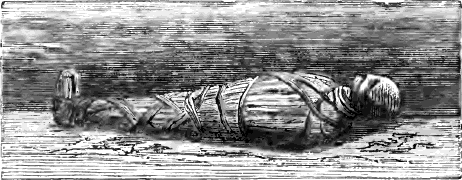<![CDATA[One of the most well preserved mummies that was discovered in the Alps is believed to have had a genetic predisposition to cardiovascular diseases. According to reports, Otzi the Iceman (the name given to this mummy) had hardened arteries when he was felled down on an alpine glacier by an arrow. Scientists say that this man who lived about 5300 years ago was extremely active, did not smoke at all, enjoyed a healthy and pollution free environment and did not wolf down his food in front of television sets. Despite these benefits, he still had an extremely strong predisposition to cardiovascular diseases. According to Albert Zink, a paleopathologist working for the Institute for Mummies and the Iceman at the European Academy of Bozen/Bolzano, heart diseases were not something that medical experts expected to find in a body that lived so long ago. Otzi the Iceman was discovered in the year 1991 by two hikers when they stumbled upon the mummy in the Otztal Alps close to the Austria – Italy border. Ever since then, Otzi has been subjected to numerous tests in order to determine the life and conditions that prevailed on earth when he was alive. In fact, researchers actually managed to find out a great deal about Otzi – right from what he had for his last meal and how he grew up to his fashion sense. Research conducted in the past has already suggested that Otzi most likely suffered from issues such as joint pain, tooth decay, atherosclerosis and the Lyme disease. Among all these diseases, atherosclerosis was considered to be the most surprising as these diseases are usually associated with modern day people living on negligible physical activity and junk food. However, an independent research conducted on the mummies of Ancient Egypt also revealed that these mummies suffered from atherosclerosis as well. Zink states that the reports are beginning to show that atherosclerosis has been around for quite some time. Therefore, he concluded that it would be safe to say that atherosclerosis is not a civilization disease, contrary to what is believed today. Scientists also took a sample of the Iceman’s hip bone as well as his entire genome in order to determine his family tree. To everyone’s surprise, Otzi still has about 19 living relatives in Europe. A recent study conducted by Zink and his colleagues also proved that Otzi had several variations in his gene, including variations that usually associated with cardiovascular diseases. One such variation is the one on the ninth chromosome, something that medical experts closely associate to heart troubles today. These findings definitely seem to suggest that genes play a huge role in heart diseases and that the causes of these diseases are not just restricted to improper lifestyles. Zink also stated that his team would like to compare the genetic makeup of some of the other mummies with the genetic makeup of Otzi in order to try and determine the exact role played by genetics in heart disease. Tests to verify whether Otzi’s body suffered from inflammation, the human body’s natural response to damage or infection, is also being carried out. Hopefully, we should be able to get fuller insights on how important genes really are in terms of heart diseases in the near future. ]]>
Ötzi the Iceman had Genetic Predispositions to Heart Disease
